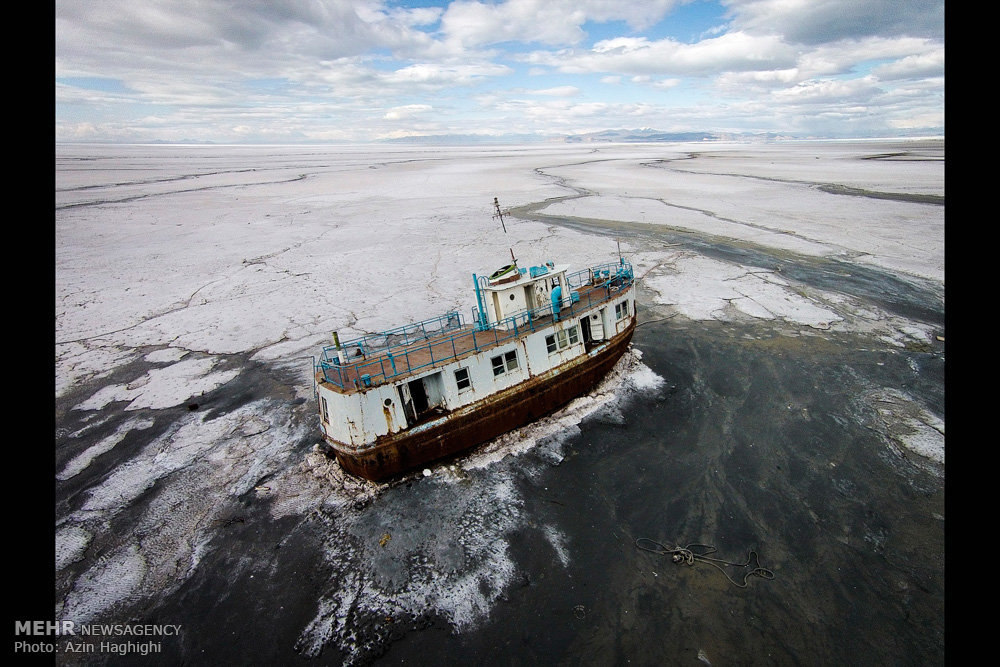Budget deficit could do irreparable damage to Lake Urmia

TEHRAN — Officials in charge of Lake Urmia restoration program have said the government has not allocated budget to the project in the next Iranian calendar year (March 2017-March 2018) and this could do irreparable damage to the lake’s restoration program.
Lake Urmia, northwestern Iran, which used to be the largest lake in the Middle East and the sixth-largest saltwater lake on Earth with a surface area of approximately 5,200 square kilometers is facing a dramatic decline for some years now.
Dubbed as the “the turquoise solitaire of Azarbaijan” the lake which was a major tourist attraction and a home to migratory birds has shrunk substantially.
Old and inefficient irrigation methods, depleting ground water resources within the lake watershed, long periods of drought, damming rivers which were supposed to flow into the lake and on top of that mismanagement and inappropriate measures intensified the lakes status over time.
“Unlike building a road [or other construction projects in general] Lake Urmia restoration program or other environmental programs of the kind cannot be postponed; they have to keep going on uninterruptedly and continually,” Masoud Tajrishi an official with Lake Urmia restoration program headquarters told Mehr news agency.
Tajrishi went on to regret that “all we’ve done and achieved so far and all the resources committed [to the lake restoration] will be wasted.”
Poor air, land, and water quality caused by lake drastic decline all have serious health effects including respiratory and eye diseases and encourages farmers, whose living are dependent on their fields, to move away, Tajrishi added.
Despite the current administration campaign promises to assign priority to Lake Urmia restoration no budgetary allocation is announced for the lake next year, he highlighted, adding, currently there are many projects which are put on hold to be financed.
Isa Kalantari, the head of Lake Urmia restoration program headquarters also pointed out that according to the projection model provided in 2014 the lake could have totally dried up by this summer had they not implemented restoration programs.
“But thanks to the locals and the officials in charge of the lake restoration this summer the lake water level was 20 centimeters above the average level recorded in 2013,” Kalantari noted.
So far the government has allocated some 18.2 trillion rials (nearly $455 million) to the lake restoration for projects to replace old irrigation systems and farming practices, prevent soil erosion, etc. for the current year.
MQ/MG
